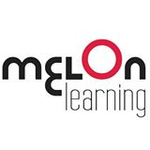Description

Learning Suite 360

Melon LMS
Comprehensive Overview: Learning Suite 360 vs Melon LMS
As of my last update in October 2023, specific information about "Learning Suite 360," "Melon LMS," and "SCL" might not be fully covered due to the continuously evolving nature of educational technology platforms. Below is a general framework based on typical characteristics and comparisons found in similar products:
A) Primary Functions and Target Markets
Learning Suite 360
- Primary Functions:
- Comprehensive learning management system (LMS) with tools for course creation, administration, documentation, tracking, reporting, and delivery.
- Often includes features such as virtual classrooms, assessments, analytics, and collaboration tools.
- Target Markets:
- Educational institutions such as universities and K-12 schools.
- Corporate training and certification programs looking for extensive e-learning solutions.
Melon LMS
- Primary Functions:
- Offers e-learning capabilities with customizable modules for course management, content creation, and learner engagement.
- Focuses on ease of use, making it suitable for organizations needing streamlined implementation.
- Target Markets:
- Small to medium-sized businesses.
- Entities that prioritize quick setup and simple user experience over extensive functionality.
SCL
- Primary Functions:
- SCL might refer to several platforms, but in the context of LMS, it’s often seen as a student-centric learning tool emphasizing personalized learning journeys and social learning.
- Enhances student engagement through interactive content and peer collaboration.
- Target Markets:
- Schools that emphasize progressive educational methods.
- Institutions focusing on blended learning and flipped classroom methodologies.
B) Market Share and User Base
- Learning Suite 360 typically aims at larger educational and corporate sectors, potentially enjoying a substantial market presence due to its comprehensive capabilities.
- Melon LMS may capture smaller market segments, appealing to organizations needing quick, efficient solutions without the complexities of larger systems.
- SCL, given its student-centered approach, often appeals to niche educational sectors focusing on innovation and personalization, possibly limiting widescale adoption but holding significant sway among progressive institutions.
Overall, the exact market share and user base statistics can vary, so consulting industry reports or platform-specific data would provide the most accurate insights.
C) Key Differentiating Factors
Learning Suite 360
- Differentiating Factors:
- Robust and scalable platform catering to diverse educational structures.
- Advanced analytics and reporting capabilities suitable for data-driven decision-making.
- Extensive customization options.
Melon LMS
- Differentiating Factors:
- Emphasis on usability and simplicity, allowing for quick adoption and minimal training.
- Cost-effective solution for smaller entities that do not require the breadth of features offered by larger systems.
- Focus on core LMS features without overwhelming with options.
SCL
- Differentiating Factors:
- Strong focus on personalized and student-driven learning experiences.
- Promotes social learning and community building, distinguishing it within schools prioritizing these pedagogies.
- Potentially innovative feature sets aligned with modern educational theories.
To obtain the most recent data and detailed competitive analysis, consulting market analysis firms or reports specific to 2023 and beyond would be critical, as the edtech landscape continues to evolve rapidly.
Contact Info

Year founded :
Not Available
Not Available
Not Available
Not Available
Not Available

Year founded :
Not Available
Not Available
Not Available
Not Available
Not Available
Feature Similarity Breakdown: Learning Suite 360, Melon LMS
To provide a comprehensive feature similarity breakdown for Learning Suite 360, Melon LMS, and SCL, let's explore the three main aspects: common core features, user interface comparisons, and unique features that differentiate each product. Please note that without access to the latest proprietary details about these platforms, this analysis is based on general trends and features typically associated with such software.
a) Common Core Features
-
Course Management: All three platforms likely offer tools for creating, managing, and delivering online courses, including features such as content upload, course templates, and organizational structures.
-
Assessment and Quizzing: These LMS platforms should support functions for creating and administering quizzes and assessments, including automatic grading and feedback mechanisms.
-
Tracking and Reporting: Comprehensive tracking of student progress and performance metrics is a standard feature, allowing instructors to monitor learning outcomes.
-
User Management: Capabilities to manage user roles, permissions, and enrollments, which is crucial for both learners and educators.
-
Communication Tools: Common tools like discussion forums, messaging, and announcement boards to facilitate interaction between students and instructors.
-
Mobile Accessibility: All platforms likely support access via mobile devices to offer flexibility in learning.
-
Integration Capabilities: Support for integration with other systems, such as HR software, content libraries, or third-party apps (e.g., Zoom, Google Suite).
b) User Interface Comparisons
-
Learning Suite 360: Typically, platforms like Learning Suite 360 prioritize a clean, modern interface with intuitive navigation. Expect dashboards, drag-and-drop content creation, and a streamlined experience for both users and administrators.
-
Melon LMS: Known for a user-friendly interface, Melon LMS often emphasizes simplicity and ease of use. It might have customizable themes and straightforward navigation to serve a wide range of educational environments.
-
SCL: SCL may focus on a more academic or corporate look, integrating various feature sets in a slightly more structured interface. User experiences might be tailored, depending on whether it's used in educational institutions or corporate training scenarios.
c) Unique Features
-
Learning Suite 360: This platform might offer advanced analytics and AI-driven insights that provide predictive analytics to improve learning outcomes. Additionally, features like personalized learning paths and adaptive learning technologies may set it apart.
-
Melon LMS: Melon LMS could distinguish itself with strong localization support and multilingual options, making it particularly appealing for international organizations. It may also feature robust content authoring tools directly within the platform.
-
SCL: This platform might excel with specialized modules (like compliance training or certification tracks) oriented towards specific industries or educational levels. It could also offer an extensive library of pre-built courses.
Conclusion
While Learning Suite 360, Melon LMS, and SCL share several core features, they each have unique aspects that cater to particular user needs and organizational goals. Your choice among these would depend on specific requirements, such as ease of use, customization needs, integration capabilities, and specialized functionalities. It's advisable to conduct a hands-on trial of each platform to determine the best fit for your objectives.
Features

Progress Tracking
Personalized Learning Paths
Interactive Content
Accessibility Features
Collaboration Tools

Comprehensive Course Management
Support and Resources
User-Friendly Interface
Performance Tracking
Engagement and Collaboration
Best Fit Use Cases: Learning Suite 360, Melon LMS
When evaluating which learning management system (LMS) or educational platform to select, it's crucial to consider the specific needs of your organization and how each platform aligns with those needs. Below is a breakdown of how Learning Suite 360, Melon LMS, and SCL cater to different businesses, projects, and industries.
a) Learning Suite 360
For what types of businesses or projects is Learning Suite 360 the best choice?
-
Large Enterprises and Corporate Training: Learning Suite 360 is ideal for large organizations that require a comprehensive LMS capable of handling extensive training programs. It often includes features like advanced reporting, integration capabilities, and custom branding, making it suitable for corporations with complex training needs.
-
Global Companies: Its ability to support multiple languages and international standards makes it a strong option for companies with a global presence.
-
Scalability Needs: Companies planning substantial growth should consider Learning Suite 360, as it can efficiently support a growing number of users and content without compromising performance.
b) Melon LMS
In what scenarios would Melon LMS be the preferred option?
-
Small to Medium Enterprises (SMEs): Melon LMS is often favored by SMEs due to its cost-effectiveness and ease of use. It provides essential features without the complexity of more extensive systems, making it easier for small teams to manage.
-
Startups and Niche Markets: For businesses in niche markets or startups needing a straightforward and efficient LMS to manage training or onboarding, Melon LMS offers a streamlined solution.
-
Rapid Deployment Projects: When the primary need is quick setup and execution, Melon LMS is a great choice due to its intuitive interface and minimal learning curve.
c) SCL (Social Collaborative Learning)
When should users consider SCL over the other options?
-
Educational Institutions: SCL is particularly suited for academic environments, supporting collaborative learning activities that are fundamental in educational contexts, from K-12 to higher education.
-
Organizations Promoting Social Learning: Businesses looking to foster a culture of social learning and peer collaboration should consider SCL, as its design encourages interaction and shared learning experiences.
-
Innovation and Development Teams: Companies focused on innovation projects where team collaboration and sharing of ideas through learning are critical can benefit from SCL's capabilities.
d) How do these products cater to different industry verticals or company sizes?
-
Learning Suite 360: Best for large-scale enterprises in diverse industries such as finance, healthcare, and technology that require robust, scalable, and customizable solutions. Its versatility caters to complex organizational needs across verticals.
-
Melon LMS: Often preferred by smaller businesses in industries like retail, professional services, and non-profits that need a budget-friendly option. Its ease of use is beneficial for companies with limited technical resources.
-
SCL: Ideal for industries emphasizing collaboration and knowledge sharing, such as education, research, and creative industries. The platform is often chosen by educational institutions and sectors that prioritize community and teamwork in learning.
Ultimately, the right choice will depend on the specific requirements of the company, including its size, industry vertical, budget constraints, and the desired user experience for both administrators and learners.
Pricing

Pricing Not Available

Pricing Not Available
Metrics History
Metrics History
Comparing undefined across companies
Conclusion & Final Verdict: Learning Suite 360 vs Melon LMS
In evaluating Learning Suite 360, Melon LMS, and SCL, several factors such as functionality, cost, user experience, scalability, and customer support must be considered to determine the best overall value.
Conclusion and Final Verdict:
a) Best Overall Value:
- Learning Suite 360 offers the best overall value among the three options. It provides a comprehensive set of features that cater to both small and large organizations. Its flexibility and scalability make it suitable for a wide range of use cases. Although it might come with a higher upfront cost compared to Melon LMS and SCL, the robust functionality and support outweigh the initial investment in the long run.
b) Pros and Cons:
Learning Suite 360:
- Pros:
- Comprehensive feature set including advanced analytics, content management, user engagement tools, and integrations.
- Scalable solution suitable for organizations of varying sizes and industries.
- Strong customer support and extensive documentation.
- Cons:
- Higher price point may not be suitable for smaller organizations or those with limited budgets.
- Complexity of features might require a learning curve or dedicated training.
Melon LMS:
- Pros:
- Cost-effective with essential functionalities for basic e-learning needs.
- User-friendly interface, providing ease of use for beginners.
- Quick deployment and integration capabilities.
- Cons:
- Limited advanced features and customization options.
- May not scale effectively with rapidly growing organizations or complex needs.
SCL:
- Pros:
- Focus on collaborative learning and social features.
- Competitive pricing with basic learning management features.
- Strong community support and regular updates.
- Cons:
- Fewer integrations and advanced features than competitors.
- May require additional tools to meet comprehensive learning requirements.
c) Recommendations for Users:
-
Budget-Constrainted Organizations or Startups:
- Melon LMS is a suitable option due to its cost-effectiveness and ease of use. It provides the basic tools needed to start an e-learning initiative without heavy investment.
-
Organizations Prioritizing Scalability and Advanced Features:
- Learning Suite 360 is recommended for its comprehensive feature set and scalability. This option is ideal for organizations planning long-term use and potential growth.
-
Teams Focusing on Collaborative Learning:
- SCL can be a good choice for those emphasizing collaboration and community learning. It's suitable for educational institutions or companies that prioritize interactive learning environments.
Ultimately, the choice between these solutions should align with the specific needs, budget constraints, and strategic vision of the organization or user. Consider conducting a pilot or trial to ensure the chosen LMS meets all requirements before committing to a full implementation.
Add to compare
Add similar companies



